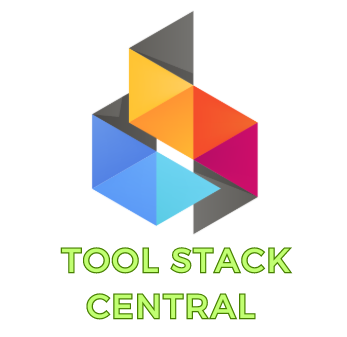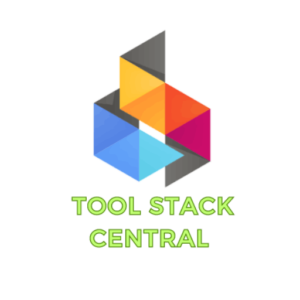YAML to JSON Converter
About YAML to JSON Converter
The YAML to JSON Converter is a versatile and user-friendly tool designed to streamline the process of converting YAML (YAML Ain’t Markup Language) content into JSON (JavaScript Object Notation) format. In today’s fast-paced digital world, where data interchange and configuration management are crucial, this tool provides an efficient solution for developers, system administrators, and IT professionals. With just a few clicks, you can transform your YAML files into JSON, ensuring compatibility across different systems and applications.
YAML and JSON are both widely used formats for data serialization, each with its own strengths and use cases. YAML is appreciated for its human-readable syntax, making it an ideal choice for configuration files and settings. However, JSON’s lightweight and structured format is favored for data interchange, particularly in web applications. The YAML to JSON Converter bridges the gap between these two formats, allowing you to maintain the readability of YAML while leveraging the versatility of JSON.
What is YAML Content?
YAML, which stands for “YAML Ain’t Markup Language,” is a data serialization format designed to be easy to read and write. Unlike other formats that use complex syntax, YAML is known for its simplicity, using indentation to define structure. This makes it particularly suitable for configuration files, where clarity is paramount. YAML is widely used in various applications, including continuous integration pipelines, container orchestration tools like Kubernetes, and more.
The key advantage of YAML lies in its readability. It allows developers and system administrators to easily manage configuration files without getting bogged down by complex syntax. YAML supports various data types, including scalars (such as strings and numbers), lists, and dictionaries, making it flexible enough to handle a wide range of data structures. However, when it comes to data interchange, especially in environments where JSON is the standard, converting YAML to JSON becomes necessary.
What is JSON Content?
JSON, or JavaScript Object Notation, is a lightweight data-interchange format that has become the standard for transmitting data between servers and web applications. JSON’s simplicity and ease of use make it a popular choice for developers, especially in JavaScript environments. It uses a text format that is easy to parse and generate, making it ideal for representing structured data.
JSON is used extensively in APIs, web services, and data storage, where its compactness and efficiency are highly valued. The format is structured using key-value pairs, arrays, and nested objects, allowing for complex data to be represented in a straightforward manner. While JSON is machine-readable, it is also human-readable to an extent, though not as intuitive as YAML for certain use cases. This is why converting YAML to JSON can be beneficial, particularly when you need to integrate YAML-based configurations into JSON-centric systems.
Benefits of This Tool
- Efficient Conversion Between YAML and JSON: The YAML to JSON Converter simplifies the process of transforming data from YAML to JSON format. Whether you’re dealing with simple key-value pairs or complex nested structures, the tool ensures a smooth and accurate conversion, saving you time and effort.
- Enhanced Readability and Maintainability of Data: By converting YAML to JSON, you can retain the readability of your data while making it compatible with a broader range of applications. JSON’s structured format also facilitates easier parsing and processing by machines, which is crucial in automated environments.
- Facilitates Interoperability Between Different Systems: YAML and JSON are used in different contexts, and being able to convert between them enhances the interoperability of your data. This tool allows you to adapt your data for different systems and environments without losing the benefits of either format.
How to Use This Tool
The YAML to JSON Converter is designed to be intuitive and easy to use, even for those who may not be familiar with the intricacies of data serialization. Here’s how you can convert your YAML content to JSON in just a few simple steps:
- Enter Valid YAML Content: Begin by pasting your YAML content into the left editor. Ensure that the YAML is well-formed and properly indented, as this is crucial for accurate conversion.
- Click “Convert to JSON”: Once your YAML content is ready, click the “Convert to JSON” button. The tool will instantly process the YAML and generate the corresponding JSON content.
- View the JSON Content: The converted JSON content will appear in the right editor. You can review it, copy it to your clipboard, or save it for use in your projects. The structured format of JSON makes it easy to integrate into your applications, APIs, or data storage solutions.
Frequently Asked Questions (FAQs)
- Q: Can I convert complex YAML structures using this tool?
- A: Yes, the YAML to JSON Converter is capable of handling both simple and complex YAML structures. Whether your YAML contains basic key-value pairs or intricate nested data, the tool ensures accurate conversion to JSON.
- Q: Is there a limit to the size of YAML content that can be converted?
- A: There is no specific limit to the size of YAML content that can be converted. The tool is designed to handle large data sets efficiently, making it suitable for converting YAML of any size.
- Q: Are there any formatting requirements for the YAML input?
- A: The tool accepts valid YAML content in any format. It’s important to ensure that the YAML syntax is correct, including proper indentation, to achieve accurate conversion results.
- Q: Can I use the converted JSON content in my projects?
- A: Absolutely! The JSON content generated by this tool is ready for use in your projects. Whether you’re integrating it into an API, storing it in a database, or using it for data interchange, the JSON output is fully compatible and easy to implement.
- Q: Is my data secure during the conversion process?
- A: Yes, the YAML to JSON Converter is designed with security in mind. Your data remains private and secure during the conversion process, ensuring that sensitive information is protected.
The YAML to JSON Converter is a valuable tool for developers, system administrators, and anyone working with data formats. By simplifying the conversion process and enhancing the compatibility of your data, this tool helps you streamline your workflow and ensure that your projects run smoothly. Whether you’re a seasoned professional or new to data serialization, the YAML to JSON Converter is an essential resource that you’ll find invaluable.
For more tools that can enhance your productivity and make your projects easier to manage, visit ToolStack Central. Our collection of tools is designed to meet the needs of modern developers, system administrators, and IT professionals, offering solutions that are both powerful and easy to use.

